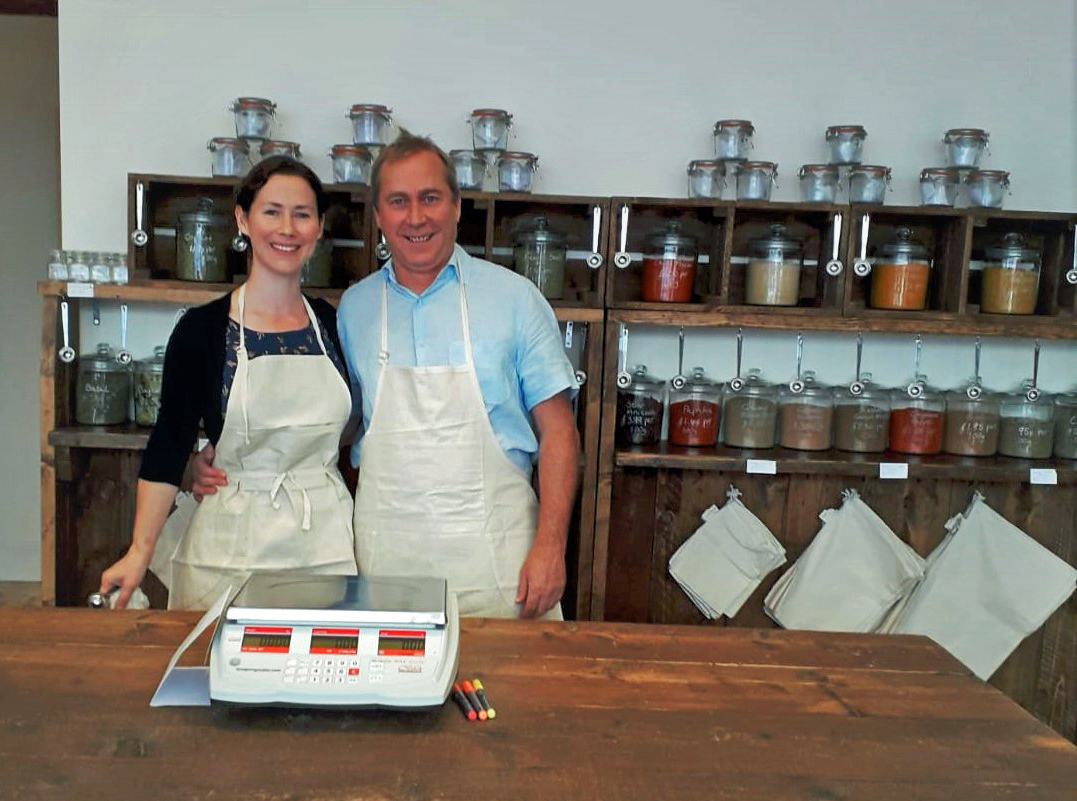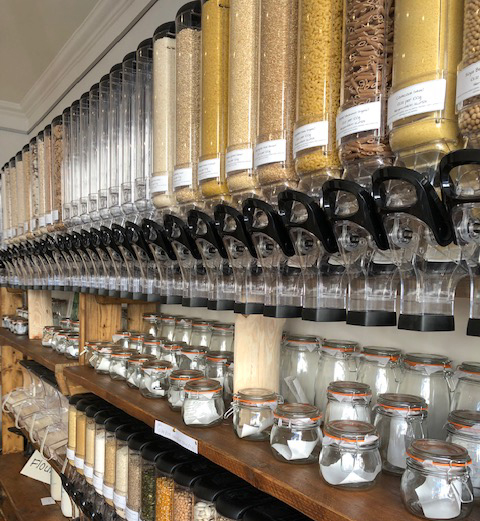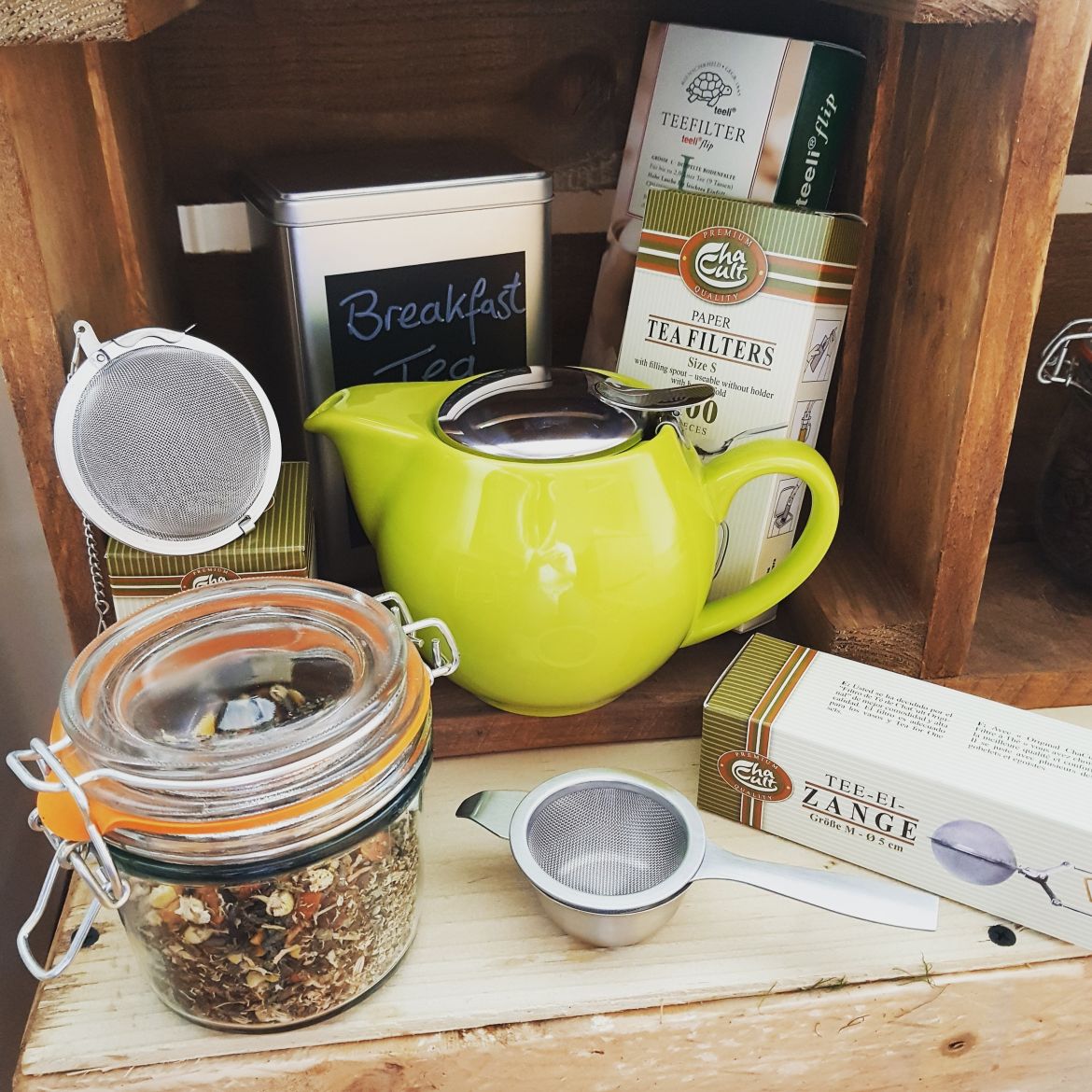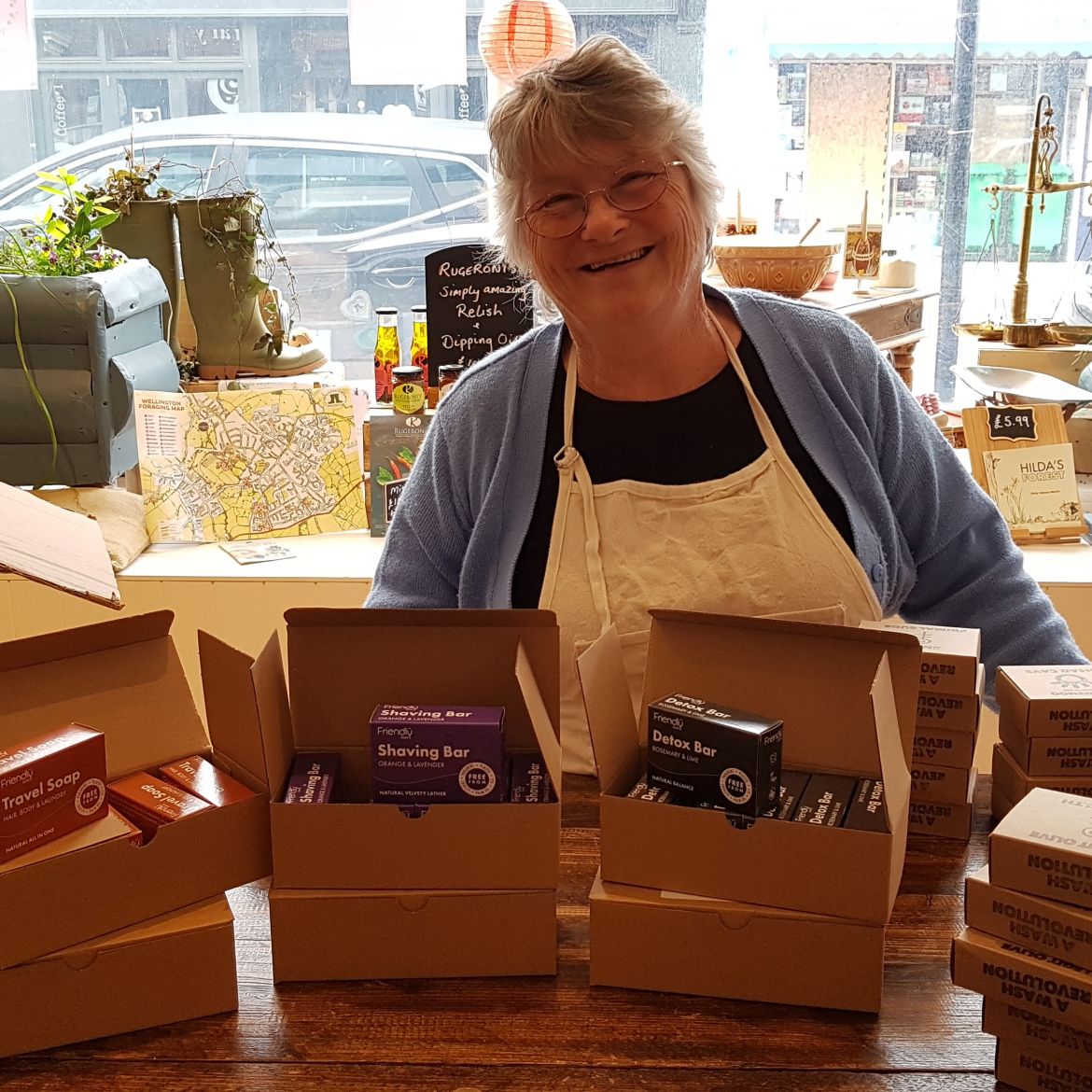In Conversation with The Blue Pantry
Zero Waste Store in WellingtonAt Cup of Tea, we are always looking for ways to reduce our use of single-use plastics and to promote the better taste of loose-leaf tea.
As a result, we are now partnering with dozens of zero waste stores up and down the country so that more of us can drink better and more ethical tea.We supply many stores and the numbers are growing, which is a great sign, and we wanted to find out what inspired them to get behind the zero waste movemens in the first place.
Here we chat to Kate from The Blue Pantry in Wellington about the benefits of going plastic-free and ideas on how we can all get on board.

CoT: Tell us about how The Blue Pantry store came about?
TBP: The Blue Pantry came about from a growing awareness of and frustration with the ‘disposable’ world in which we live.
As a family, we love the outdoors, particularly the sea and began to join the feeling of many that there must be something we could do.
The concept of a ‘zero waste’ shop first came to our attention when we visited Earth. Food. Love in Totnes, Devon.
The simplicity of the concept and the question “why not us?” led us to where we are today.CoT: What’s your motivation behind zero-waste?
TBP: Our motivation is very simple. It is to help people reduce reliance on single-use plastic by giving them an accessible and viable alternative.
We want to be a part of a growing movement to shift perceptions, attitudes and habits.
CoT: What did you do before?
TBP: Gary is a Registered Nurse for people with Learning Disabilities, and I continue to work full time in Adult Social Care.CoT: Tell us about your best-sellers? What are your customers after?
TBP: Our best sellers change over time, but steady favourites are cereals, milk, nuts, teas and coffee,
as well as our range of cleaning products which are ever in demand.CoT: Do you have any advice for people who are looking to reduce their use of plastics at home? Where can they start?
TBP: We would say, start small. Take manageable steps; otherwise, it can seem very overwhelming. We started by swapping our
body washes for soap bars and refillable shampoos. This alone has dramatically reduced the amount of plastic we use with a straightforward change.
CoT: Are you seeing any new trends in the green movement at the moment?
TBP: At present, there is, of course, the Extinction Rebellion making headlines and drawing attention to the climate change challenge,
but the local trend seems to be a quieter rebellion. The gradual coming together of the community to host seeds swaps,
repair cafes, share foraging maps, host workshops in local schools and share information. This gentler approach to making a difference
seems to be UK-wide and growing; the zero waste movement is a part of this shift.CoT: Do you think that zero-waste shops are making a positive impact on the high street but also in the community?
TBP: We have been amazed at how the local community has embraced the shop, not just from an environmental perspective,
but as a hub for community engagement and participation. There are so many like-minded people trying to make a difference in so many ways,
from local repair cafes to foraging walks, from celebrating Wellington as a Transition Town to supporting local enterprises and community projects.
We feel that the broader concept of community collaboration is what could allow the zero waste concept actually to have an impact.CoT: Where and how do you source your products?
TBP: We source our products from both local suppliers and wholesalers who are in line with the ethos and aim of the shop.
We try to balance environmental sustainability with affordability and accessibility so that people are not excluded due to financial pressures.
CoT: Are there any green heroes that inspire you?
TBP: Undoubtedly a cliché but David Attenborough has always been a presence for us. Growing up, his familiar voice narrating exquisite nature documentaries
made him part of our childhoods. I think this is why the impact of The Blue Planet series has been so great.
We all settled in to see nature at its most serene and awesome, to be confronted instead by the stark reality of the damage we have caused.
It was not with militant haranguing that our conscience is awakened, but with a deep sadness.CoT: How do you rate tea amongst your products?
TBP: Teas were one of the first products that we introduced into the shop, initially because of the enormous amount of plastic waste
associated with conventional tea bags. It soon became apparent that people loved the move to loose leaf teas, enjoying the ability to
buy as little or as much as they wanted and to try out different blends. They have been a continued success in the shop and an area we continue to expand.CoT: Have you had much feedback from your customers about the teas you stock?
TBP: Most customers love the teas, and at times we have struggled to keep up due to underestimating demand!
The one thing that we would like to see is a general blend that is more affordably priced, as this is sometimes a comment from customers who get through a lot of tea!
However, we also appreciate that the beautiful quality and crafting of the teas cannot be undersold. Decaffeinated tea is also a continued request.
- 2nd May 2019












 EARN POINTS WITH OUR LOYALTY SCHEME
EARN POINTS WITH OUR LOYALTY SCHEME